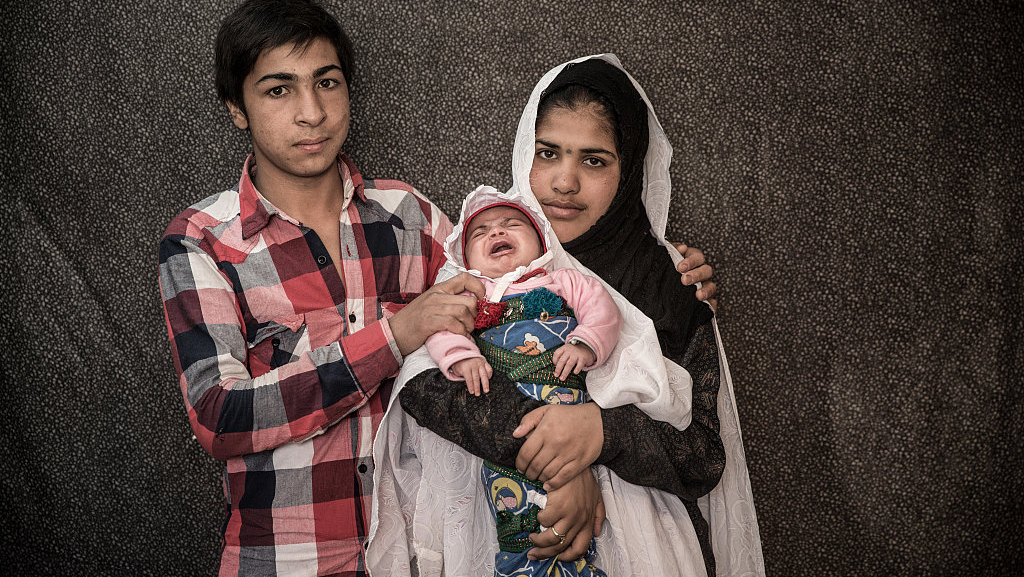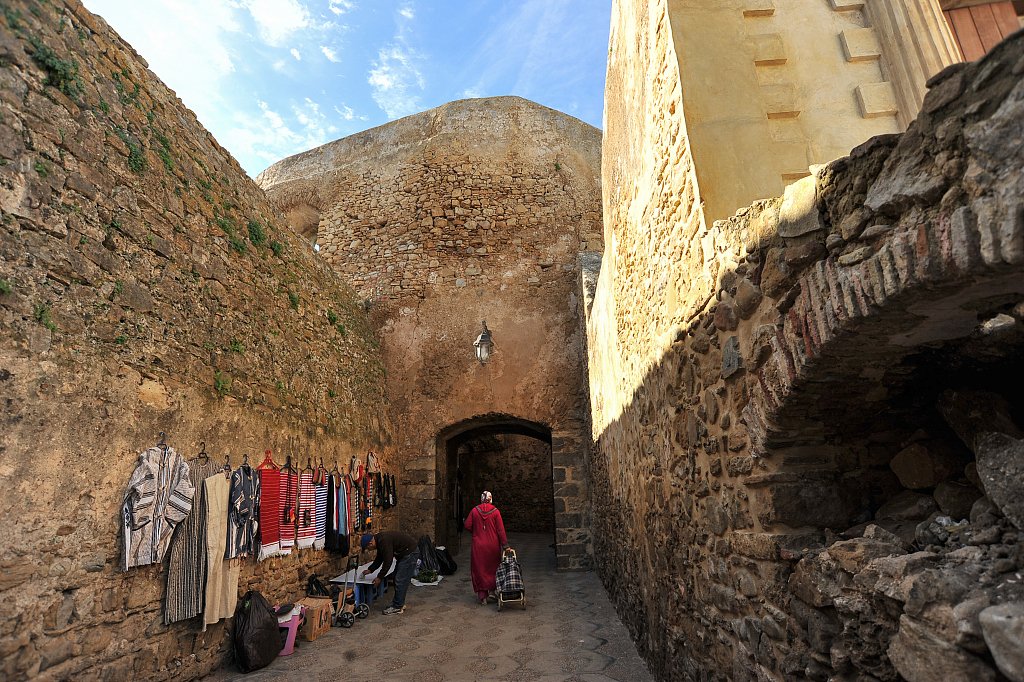
Behzad(L) and Zeinab(R) have a one-month-old son, and Behzad at the age of 13, is Iran's youngest father.
Behzad(L) and Zeinab(R) have a one-month-old son, and Behzad at the age of 13, is Iran's youngest father.
Editor's note: Moha Ennaji is Professor of Linguistics and Gender Studies at the University of Fès, Morocco. His most recent books are Minorities, Women, and the State in North Africa and Moroccan Feminisms. The article reflects the author's opinions, and not necessarily the views of CGTN.
At last month's United Nations summit on the Sustainable Development Goals (SDGs), child marriage did not get top billing. Yet ending this cruel practice – which steals girls' childhoods, bodily autonomy, and chance to build their own futures – is essential to achieve a range of SDGs, including securing gender equality, improving health, and delivering a quality education and economic opportunities to all.
Born of antiquated patriarchal traditions and sustained by ignorance, poverty, and socioeconomic inequality, child marriage remains widespread across Africa, Asia, and the Middle East. In Niger, 76 percent of girls are married before their eighteenth birthday – the highest rate in the world. Next on the list are the Central African Republic (68 percent) and Chad (67 percent). In the Middle East, 32 percent of girls in Yemen are married, followed by Iraq (24 percent) and Egypt (17 percent).
In total, more than 12 million underage girls are married off each year. That is 12 million girls who, through no decision of their own, have their childhoods – and, more than likely, their education – cut short and replaced by the obligation to endure multiple physically taxing, potentially life-threatening pregnancies, raise a family, and maintain a household.
Early marriage is correlated with higher rates of psychological and domestic violence, and often leads to mental health problems and even early death. These risks were highlighted by international media coverage of the case of Amina Filali, a 16-year old Moroccan girl who died by suicide after being forced to marry her rapist.
Despite its devastating consequences – and notwithstanding the UN Convention on the Rights of the Child, which obliges countries to protect all residents under age 18 – child marriage is often legal. Moreover, the issue is rarely a part of national development debates, and is largely ignored by government authorities, who are unwilling to challenge a long-held tradition. Even where legislation is in place to curb child marriage, it is often not stringent enough, as has been the case in Bangladesh and in my home country, Morocco.
In 2004, Morocco reformed its family law to curtail child marriage. But, due to a conservative culture, the accommodation of religious fanatics, and the prevalence of gender-based discrimination, the practice was not criminalized. On the contrary, the reforms left an exception for vaguely defined "extenuating circumstances," such as pregnancy.

A lane in Assilah, Morocco, Feb. 7, 2017. /VCG Photo
A lane in Assilah, Morocco, Feb. 7, 2017. /VCG Photo
Some families are all too eager to skirt child-marriage laws, whether because of antiquated cultural beliefs – for example, that marriage is vital to keep girls from delinquency, prostitution, or debauchery – or poverty, which makes collecting a dowry, or "bride price," highly appealing. As a result, more than 30,000 underage girls in Morocco are still being forced to marry each year. Not surprisingly, violence against women is not decreasing.
What is really needed to protect girls and women are properly enforced laws that criminalize facilitation of or participation in child marriage. Individuals who officiate at child marriages and adults who take a child bride should face severe penalties. Early marriages should never be legal.
Such legislation should fit into broader national strategies for engaging women in economic, social, cultural, and political development. Girls and women need access to healthcare, education, and training. (On closing the gender gap in education, Morocco – as well as neighbors like Tunisia and Algeria – has made significant headway in recent decades.)
Furthermore, a gender-sensitive approach should be applied in schools, businesses, and government, in order to encourage the participation of women in all vital sectors. Income-generating projects for poor families, especially in rural and distant areas, would also help, as would broad educational initiatives aimed at correcting the antiquated and erroneous beliefs that sustain child marriage, and sensitizing communities to its true consequences. This will require the involvement of all government institutions, civil society, the media, and other influential actors, like teachers, judges, and lawyers.
Girls who have already been married also need support, delivered through targeted programs that engage them and those around them, such as their husbands and mothers-in-law. Likewise, efforts should be made to help girls who have escaped an unwanted marriage or have become widowed, as they often face social rejection and abuse.
All women and girls deserve the chance to decide whether, when, and whom they marry. They deserve autonomy over their bodies, including when to have children, and how many. And they deserve the opportunity to pursue their dreams and contribute to their communities and country's economy, while improving their own standard of living. If that is not enough to convince governments and civil-society leaders to fight to end child marriage, perhaps the boon to development will be.
Copyright: Project Syndicate, 2019.
(If you want to contribute and have specific expertise, please contact us at opinions@cgtn.com.)